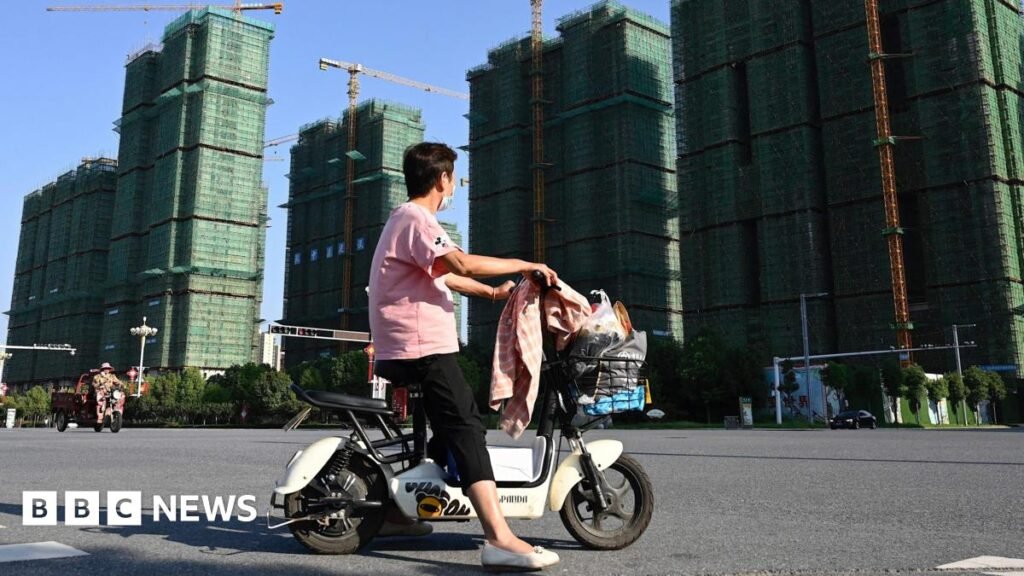This is particularly problematic as the industry accounted for about a third of the Chinese economy and was a major source of income for local governments.
“I don’t think China has found a viable alternative to support its economy at a similar scale,” Professor Qiao says.
The property crisis has led to “massive layoffs” by heavily-indebted developers, Jackson Chan from financial markets research platform Bondsupermart says.
And many real estate industry employees that kept their jobs have seen big pay cuts, he adds.
The crisis is also having a major impact on many households as they tend to put their savings into property.
With housing prices dropping by at least 30%, many Chinese families have seen their savings fall in value, says Alicia Garcia-Herrero, chief economist for Asia Pacific at French bank Natixis.
This means they are less likely to spend and invest, she adds.
In response, Beijing has announced a raft of initiatives aimed at reviving the housing market, stimulating consumer spending and boosting the wider economy.
They range from measures to help new home owners and support the stock market to incentives to buy electric cars and household goods.
Despite the hundreds of billions of dollars Beijing has poured into the economy, China’s once-blistering growth has eased to “around 5%”.
While most Western countries would be more than happy with that, it’s slow for a country that saw growth of more than 10% a year as recently as 2010.

